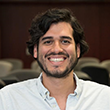


GROOCX: SOCIAL LEARNING FOR SOCIAL IMPACT
Course Syllabus
Introduction
The goal of this GROOC (a MOOC for groups) is to inspire the creation of social initiatives that will generate social impact. We believe profound learning happens when people share their experience with each other in small groups or teams. We call this social learning. Through this massive open online course, we hope to engage a worldwide network of people who care about creating a better world. Welcome to this GROOC!
Is this GROOC for you?
This GROOC was designed to be as inclusive as possible, for people at different levels of social engagement. Maybe you are:
- Already working within the social sector on a social initiative (formally or informally);
- Thinking about contributing to a social initiative in collaboration with other like-minded individuals; or
- Concerned about where the world is headed and contemplating ways of responding.
Regardless of your experience working within the plural sector (also referred to as the social sector, third sector, non-profit sector, etc.), this GROOC is for you.
What can I expect to learn?
The GROOC has been designed to help you:
- Form teams to learn and act together (Engaging)
- Work as a high-functioning team (Co-Creating)
- Learn your way to a prototype (Designing)
- Grow your social impact (Scaling)
- Find resources to help sustain your efforts (Resourcing)
- Discern when and how to measure your impact (Assessing)
What’s the course content?
This course consists of seven Sessions of content, plus two Live Sessions for our global community to come together and share, as follows:
| Session 1 | Engaging | Release Date: 16-Sep |
| Session 2 | Co-Creating | Release Date: 23-Sep |
| Session 3 | Designing | Release Date: 07-Oct |
| Live Session 1 | Opening global conversation | October 14 (16:00-17:00 UTC) |
| Session 4 | Scaling | Release Date: 21-Oct |
| Session 5 | Resourcing | Release Date: 04-Nov |
| Session 6 | Assessing | Release Date: 18-Nov |
| Session 7 | Impact Gallery | Release Date: 02-Dec |
| Live Session 2 | Closing global conversation | December 16 (17:00-18:00 UTC) |
SESSION 1: ENGAGING
Release date: Wednesday, September 16
The goal of Session 1 is to help you connect with the overall topics of the course, with the global community of participants, and with your own team. The mini-lectures include:
- Our Model of Social Learning for Social Impact, with Henry Mintzberg
- An overview of the GROOC, with Leslie Breitner and Carlos Rueda
- Rebalancing Society, with Henry Mintzberg
- Empathic Action, with Anita Nowak
- Social Issues We Care About, with GROOC participants
Your team task (which we refer to as a Group Charge) at the end of Session 1, is to join/form your team and start the conversation. Instructions about how to do this are outlined on the edX platform. Please note: We encourage teams to form no later than Wednesday, September 30 so as not to impede/delay teamwork for Session 2’s Group Charge.
SESSION 2: CO-CREATING
Release date: Wednesday, September 23
The goal of Session 2 is to help your group become a well-functioning team. The mini-lectures include:
- Community-ship versus Leadership, with Henry Mintzberg
- Becoming a High-functioning Team & Teamwork as Integrated Learning, with Raye Kass
- Looking at The Deep Why of Your Organization, with Tana Paddock
- Working in a More Experiential Way, with Jonathan Glencross
The Group Charge at the end of Session 2 is to have guided one-on-one and whole-group conversations aimed at deepening the relationships within your team, as well as developing some team norms to enhance your social learning and increase the likelihood of your team’s success.
SESSION 3: DESIGNING
Release date: Wednesday, October 7
The goal of Session 3 is to help your team get out of the thinking stage and closer to action by designing a prototype for your social initiative. The mini-lectures include:
- Thinking, Seeing and Doing, with Henry Mintzberg
- Visioning as Designing, with Henry Mintzberg
- Ideas from Human Centered Design, with Leslie Breitner
- Leadership as Learning in Action, with Marshall Ganz
- Designing as Learning, with Henry Mintzberg
The Group Charge at the end of Session 3 consists of building a common vision for your team, prototyping the idea for your social initiative, testing it, and learning from the experience.
LIVE SESSION 1
Wednesday, October 14, 16:00-17:00 UTC
This will be the first of two live-streamed Sessions. They are intended as an opportunity for the GROOC community to come together and engage in a live global discussion. The four course co-designers will also share some of your social initiative prototypes.
Details about how to join the live Session will be posted on the Course Info page.
SESSION 4: SCALING
Release date: Wednesday, October 21
The goal of Session 4 is to open a critical dialogue about the why and how of scaling up a social initiative. Also, we’ll invite you to consider the GROOC’s meta-question, namely: How can we consolidate many social initiatives into a movement that rebalances society? The mini-lectures include:
- Models of Scaling, with Henry Mintzberg
- Questions for Scaling, with Marshall Ganz
- Getting to the Deeper Issue, with Marshall Ganz
- Getting the Plural Sector’s Act Together, with Henry Mintzberg
- Moving towards Solidarity Networks, with Alex Megelas
The Group Charge for Session 4 consists of a critical team discussion and the development of a shared vision for scaling your social initiative at a systems level.
SESSION 5: RESOURCING*
Release date: Wednesday, November 4
The goal of Session 5 is to expose you to models of funding for your social initiative. The mini-lectures include:
- Types of Resourcing, with Henry Mintzberg
- Fundamentals of Fundraising, with Anita Nowak
- Givers versus Receivers of Funds, with a panel of practitioners on both sides of the fence
- Impact Investing, with Karim Harji and Assaf Weisz
- Lessons from the Frontlines, with John Wood
The Group Charge for Session 5 consists of a team reflection and activity to explore models for getting resources for your social initiative.
*This Session is being finalized and some elements are subject to change.
SESSION 6: ASSESSING*
Release date: Wednesday, November 18
The goal of Session 6 is to provide your team with approaches and tools to determine if you are on the right track and if the impact you are making is the one that you intended. The mini-lectures include:
- A Story from Roots of Empathy, with Mary Gordon
- A Story from the J. W. McConnell Family Foundation, with Stephen Huddart
- Theory of Change & Logic Models, with Leslie Breitner
- Social Values and Result Maps, with Larisa Benson
- Performance Management in the Plural Sector, with Steve Smith
- Trends in Philanthropy, with John Hallward
- Lessons from the Frontlines, with John Wood
The Group Charge for Session 6 consists of a team discussion about the measures and indicators that can help you better understand the impact of your social initiative.
*This Session is being finalized and some elements are subject to change.
SESSION 7: IMPACT GALLERY
Release date: Wednesday, December 2
In this final Session, all the teams will be invited to synthesize and share the results and learnings collected along your GROOC journey, both individually and as a team. In other words, the Impact Gallery will be a virtual place to appreciate and share both the social learning and the social impact you lived and achieved throughout the course.
Instructions about how to post to the Impact Gallery are outlined on the edX platform.
LIVE SESSION 2
Wednesday, December 16, 17:00-18:00 UTC
During this second Live Session, we will celebrate the social learning and social impact highlights of the GROOC. The GROOC team will react to the artifacts and stories you posted to the Impact Gallery. This will also provide us with a space to explore how we can sustain and grow the GROOC community.
What’s expected of you throughout this course?
For each of the seven Sessions you are expected to complete:
Individual Work
You will watch the mini-lectures and complete the individual activities (i.e. polls, personal reflections, sharing in the discussion forum, etc.). This individual work part should take approximately 60-90 minutes per session, depending upon your level of engagement with the activities.
Teamwork (aka Group Charge)
At the end of every Session, your team will be presented with a Group Charge – a team activity with a group reflection and discussion component. Some Group Charges will also include an action component designed to help you learn from your peers and advance your social initiative. This teamwork should take approximately 1-3 hours per session, depending on your group’s level of engagement with the Charge. How your group meets and completes the Group Charges is completely up to you.
NOTE: Social initiatives that are not appropriate for the course will be removed by the Course Development Team at their discretion.
Teamwork may happen in one of three ways, or a combination thereof, as follows:
- In face-to-face meeting
- Via an online platform such as Skype or Google hangout
- Within the team chat space on edX for asynchronous communication
After each Group Charge, your team will be invited to develop a summary of your experience and/or group discussion (max. 1 page), highlighting insights, take-away ideas or conclusions you have drawn from the Group Charge. A Google document, for example, can be used for this purpose. This summary will be posted and shared in the team chat space for your designated Facilitator to provide feedback. Teams should submit the Group Charge summary before the release time of the following session.
The submission deadline for each Group Charge has been established so that you have an opportunity to receive feedback as you move onto the next Session’s Group Charge. If your team does not meet a submission deadline, you will still be able to post your work, but we cannot ensure that you will receive feedback from your facilitator.
Can you go deeper into the course content?
Yes! Each Session includes an Additional Resources tab which hosts links to videos, websites and reading materials. We encourage you to explore these at your leisure. Every Session also contains an Insights from the Field tab which hosts a collection of video interviews with practitioners and experts working in the plural sector, as follows:
Session 1
- Muhammad Yunus, Founder, Grameen Bank
- Mary Gordon, Founder, Roots of Empathy
- Gabe Mott, Chief Operating Officer, Aspire Food Group
Session 2
- Tana Paddock, Co-Founder, Organization Unbound
- Stephen Huddart, President & CEO, The J. W. McConnell Family Foundation
- Larisa Benson, Founding Co-Director, Executive Master of Public Administration program, University of Washington
Session 3
- Philippe Meunier, Chief Creative & Co-Founder, Sid Lee
- Marguerite Mendell, Graduate Program Director, School of Community and Public Affairs, Concordia University & Nancy Neamtan, President & Executive Director, Chantier de l’économie sociale
- Liam O’Rourke and Dan Tenveen, Co-Founders, Spectrum Productions
Session 4
- Allyson Hewitt, Senior Fellow, MaRS
- Joanne Maislin, President, JMConsulting & Nathalie Voland, CEO, Quo Vadis
- Elisha Muskat, Executive Director & Claudia De Simone, Director of Partnerships, Ashoka Canada
Session 5
- Joanna Reynolds, Associate Director of the MaRS Centre for Impact Investing
- Assaf Weisz & Karim Harji, Co-Founders, Purpose Capital
- Steve Smith, The Evans Professor of Public Affairs at the University of Washington and Past President of the Association for Research on Nonprofit Organizations and Voluntary Action, University of Washington
Session 6
- Lara Evoy & Stephanie Garrow, Coach, Innoweave
- Desirée McGraw, President & Executive Director, The Jeanne Sauvé Foundation, Fabrice Vil, Founder & Executive Director, Pour Trois Points & Sahman Ahsan, Executive Director, Girls Action Foundation
- Jennifer Lonergan, Founder & Executive Director, Artistri Sud
What kind of feedback can you expect?
Feedback will happen at different levels:
Online Community Facilitators
To the best of our ability, each team will be assigned a dedicated Online Community Facilitator to support teams in three ways:
- Moderating team discussions
- Providing feedback on the Group Charge summaries
- Encouraging general engagement within the team.
Please see their profiles by clicking on the Community Facilitators tab on the course page.
Course Assistants
The GROOC’s three Course Assistants will be actively participating in the Discussion Forum throughout the course. They will also answer questions and offer any necessary clarifications.
Course Co-Designers
The GROOC’s four course co-designers (Henry, Leslie, Anita, and Carlos) will be recording weekly commentary videos in reaction to the activities and conversations taking place week-to-week.
These, along with any special course announcements, will be posted in the Course Info tab.
How will my learning be evaluated?
Importantly, this GROOC does not have quizzes or exams to test your knowledge. Instead, you can self-assess your learning by asking:
- Am I connecting with other people in related areas of work?
- Am I reflecting on my own experience?
- Am I being inspired or motivated to act?
- Am I sharing what I know and learning with others?
- Am I (are we) making progress with my (our) social initiative?
How can I earn a certificate?
To obtain an honor code attestation (equivalent to an edX certificate) for Social Learning for Social Impact, a final grade of 50% or higher needs to be achieved. Your final mark will be based on:
- 50% Individual Work
- 50% Team Work (Group Charges)
Some of the individual activities have been assigned ‘points’ in the edX system to track your individual work. Please keep in mind that for these course components there are no ‘correct’ answers and you will receive the marks simply by doing the work. There is no deadline, but they must be submitted before the course closes on December 16, 2015, for them to be included in the calculation of your final grade.
For the Group Charges you will be asked to self-report your participation. It is important that each team member follows the steps outlined so that your student progress page reflects the work you have completed towards earning a certificate.
EdX will issue the honor code attestations (equivalent to edX certificate) under the name of McGillX after the course closes. If you have achieved 50% or higher, a link to download the certificate will appear on your student dashboard. Please note: The attestation will not include a final grade.
Who are the Course Co-Designers?
Henry Mintzberg
 Professor Mintzberg is an internationally renowned academic and prolific author on management and strategy, with more than 170 articles and 17 books to his name. He has won two McKinsey Prizes for top articles in the Harvard Business Review. His Rise and Fall of Strategic Planning won the book of the year award at the Academy of Management.
Professor Mintzberg is an internationally renowned academic and prolific author on management and strategy, with more than 170 articles and 17 books to his name. He has won two McKinsey Prizes for top articles in the Harvard Business Review. His Rise and Fall of Strategic Planning won the book of the year award at the Academy of Management.
After receiving his undergraduate degree in Mechanical Engineering from McGill (1961), he worked in Operational Research at Canadian National Railways and then earned a masters (1965) and doctorate (1968) at the MIT Sloan School of Management. He has been at McGill University since then, with stints at other universities in the U.S., France, and England. In 1997, he was made an Officer of the Order of Canada. He has also been awarded 18 honorary degrees around the world. Henry continues to devote himself to writing and research, and now does a weekly TWOG (tweet2blog), “from pithy pronouncements in a line or 2 to provocative fun in a page or 2.”
Leslie Breitner
 Academic Director, International Masters for Health Leadership (IMHL) program and Module Director, International Masters in Practicing Management (IMPM) program, Desautels Faculty of Management, McGill University
Academic Director, International Masters for Health Leadership (IMHL) program and Module Director, International Masters in Practicing Management (IMPM) program, Desautels Faculty of Management, McGill University
Dr. Breitner joined the Desautels Faculty of Management at McGill University from the Daniel J. Evans School of Public Policy and Governance at the University of Washington in Seattle, Washington, USA. She served as Faculty Director for the Cascade Executive Programs and the Executive Master of Public Administration program (EMPA) where she taught financial and performance management as well as budgeting. She taught financial management and public sector budgeting at Harvard University’s Kennedy School of Government prior to living in Seattle.
An experienced instructor in distance learning, Breitner has designed curricula and taught in many online, graduate degree programs. She holds a Doctorate in Business Administration from Boston University’s Graduate School of Management in Boston, Massachusetts, USA. She is author of two popular financial accounting textbooks, Essentials of Accounting and Core Concepts of Accounting, both of which were revised and released in 2013.
Anita Nowak
 Dr. Anita Nowak is a Faculty Lecturer for the Desautels Faculty of Management. For the past two years, she has been Senior Project Manager for this GROOC, serving McGill’s Teaching & Learning Services. Prior to this role, she was the founding Integrating Director of the Social Economy Initiative and an advisor to both The Jeanne Sauvé Foundation and The J.W. McConnell Family Foundation.
Dr. Anita Nowak is a Faculty Lecturer for the Desautels Faculty of Management. For the past two years, she has been Senior Project Manager for this GROOC, serving McGill’s Teaching & Learning Services. Prior to this role, she was the founding Integrating Director of the Social Economy Initiative and an advisor to both The Jeanne Sauvé Foundation and The J.W. McConnell Family Foundation.
Nowak has two core beliefs when it comes to creating change in the world. First, that empathy is the most positively disruptive force on the planet – but only when it leads to “empathic action,” and second, that social entrepreneurship inspired by empathic action drives sustainable social change. She develops these ideas in her first book, The Empaths Strike Back (forthcoming) and the undergraduate course she teaches, Introduction to Social Entrepreneurship & Social Innovation.
Carlos Rueda
 Carlos Rueda has been a Faculty Member and Tutor for the International Masters in Health Leadership program for the last five years, and has been working on the development of this MOOC for the last two years. Apart from his pedagogical duties, Rueda writes about higher education and learning. He co-authored two articles with former McGill Principal Heather Munroe-Blum, The Strategic Repositioning of Research Universities to Fulfill their Global Promise (2013), and Universities: Serving as, and Educating Global Citizens (2012).
Carlos Rueda has been a Faculty Member and Tutor for the International Masters in Health Leadership program for the last five years, and has been working on the development of this MOOC for the last two years. Apart from his pedagogical duties, Rueda writes about higher education and learning. He co-authored two articles with former McGill Principal Heather Munroe-Blum, The Strategic Repositioning of Research Universities to Fulfill their Global Promise (2013), and Universities: Serving as, and Educating Global Citizens (2012).
He is a former SSHRC-Vanier Scholar, Fulbright Scholar and Jeanne Sauvé Fellow. Rueda is also a PhD candidate in the Desautels School of Management. His research focuses on Pedagogies and the Pedagogical Work. Before joining McGill, Carlos worked two years as Political Advisor for the Peruvian Government in Washington D.C., and two years as Organizational Consultant in a private consulting firm.
Who are the Course Assistants?
Alex Megelas
 Alex is a Montreal-based educator and community organizer. He holds an MA in Educational Studies (Concordia University) and his research is on technological literacy in autonomous communities of practice. He is an affiliate of the Center for Oral History and Digital Storytelling (Concordia University) and regularly collaborates with the University of the Streets Café program at Concordia on organizing public conversations on social issues. His most recent projects are Power Up!, a bike-powered exploration of the intersection of technology, community and self-reliance and Paper Places, a workshop series considering mapmaking and our relationship to the commons.
Alex is a Montreal-based educator and community organizer. He holds an MA in Educational Studies (Concordia University) and his research is on technological literacy in autonomous communities of practice. He is an affiliate of the Center for Oral History and Digital Storytelling (Concordia University) and regularly collaborates with the University of the Streets Café program at Concordia on organizing public conversations on social issues. His most recent projects are Power Up!, a bike-powered exploration of the intersection of technology, community and self-reliance and Paper Places, a workshop series considering mapmaking and our relationship to the commons.
Clélia Cothier
 Clélia moved to Montreal in 2012 to study Political Sciences and International Development at McGill and discovered through her studies the power of social businesses to foster change. For the past year, Clélia has been involved in the development of two student-led groups to promote social entrepreneurship, MyVision and SOCENT. After graduating this coming December, she intends to work on getting the private sector to be a strong driver of social change.
Clélia moved to Montreal in 2012 to study Political Sciences and International Development at McGill and discovered through her studies the power of social businesses to foster change. For the past year, Clélia has been involved in the development of two student-led groups to promote social entrepreneurship, MyVision and SOCENT. After graduating this coming December, she intends to work on getting the private sector to be a strong driver of social change.
Andras Lenart
 Andras has a BA. & Sc. in Cognitive Science and is working on his Master’s in Family Medicine Research at McGill University in Montreal, Canada. His project focuses on the experiences of HIV+ patients in the Quebec health care system. With TLS/McGillx, Andras has helped develop and run MOOCs. Social Learning for Social Impact is his fourth MOOC project.
Andras has a BA. & Sc. in Cognitive Science and is working on his Master’s in Family Medicine Research at McGill University in Montreal, Canada. His project focuses on the experiences of HIV+ patients in the Quebec health care system. With TLS/McGillx, Andras has helped develop and run MOOCs. Social Learning for Social Impact is his fourth MOOC project.